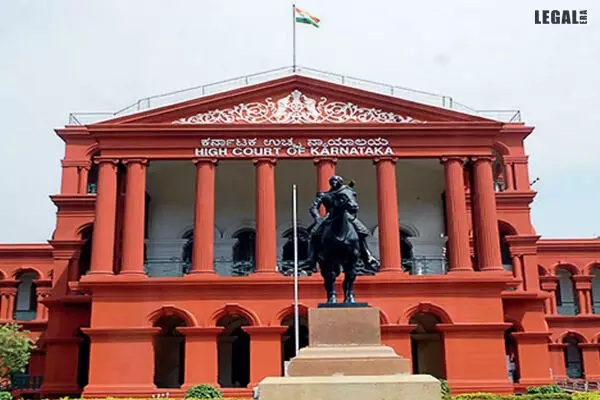- Home
- News
- Articles+
- Aerospace
- AI
- Agriculture
- Alternate Dispute Resolution
- Arbitration & Mediation
- Banking and Finance
- Bankruptcy
- Book Review
- Bribery & Corruption
- Commercial Litigation
- Competition Law
- Conference Reports
- Consumer Products
- Contract
- Corporate Governance
- Corporate Law
- Covid-19
- Cryptocurrency
- Cybersecurity
- Data Protection
- Defence
- Digital Economy
- E-commerce
- Employment Law
- Energy and Natural Resources
- Entertainment and Sports Law
- Environmental Law
- ESG
- FDI
- Food and Beverage
- Gaming
- Health Care
- IBC Diaries
- In Focus
- Inclusion & Diversity
- Insurance Law
- Intellectual Property
- International Law
- IP & Tech Era
- Know the Law
- Labour Laws
- Law & Policy and Regulation
- Litigation
- Litigation Funding
- Manufacturing
- Mergers & Acquisitions
- NFTs
- Privacy
- Private Equity
- Project Finance
- Real Estate
- Risk and Compliance
- Student Corner
- Take On Board
- Tax
- Technology Media and Telecom
- Tributes
- Viewpoint
- Zoom In
- Law Firms
- In-House
- Rankings
- E-Magazine
- Legal Era TV
- Events
- News
- Articles
- Aerospace
- AI
- Agriculture
- Alternate Dispute Resolution
- Arbitration & Mediation
- Banking and Finance
- Bankruptcy
- Book Review
- Bribery & Corruption
- Commercial Litigation
- Competition Law
- Conference Reports
- Consumer Products
- Contract
- Corporate Governance
- Corporate Law
- Covid-19
- Cryptocurrency
- Cybersecurity
- Data Protection
- Defence
- Digital Economy
- E-commerce
- Employment Law
- Energy and Natural Resources
- Entertainment and Sports Law
- Environmental Law
- ESG
- FDI
- Food and Beverage
- Gaming
- Health Care
- IBC Diaries
- In Focus
- Inclusion & Diversity
- Insurance Law
- Intellectual Property
- International Law
- IP & Tech Era
- Know the Law
- Labour Laws
- Law & Policy and Regulation
- Litigation
- Litigation Funding
- Manufacturing
- Mergers & Acquisitions
- NFTs
- Privacy
- Private Equity
- Project Finance
- Real Estate
- Risk and Compliance
- Student Corner
- Take On Board
- Tax
- Technology Media and Telecom
- Tributes
- Viewpoint
- Zoom In
- Law Firms
- In-House
- Rankings
- E-Magazine
- Legal Era TV
- Events
Karnataka High Court: Arbitration Agreement in Written Need Not Be Signed by Parties If Record of Agreement is Telecommunicated

Karnataka High Court: Arbitration Agreement in Written Need Not Be Signed by Parties If Record of Agreement is Telecommunicated
The Karnataka High Court has passed an ex-parte order appointing an arbitrator in a dispute between JK Technosoft Limited and Unikul Solutions Private Limited.
The single judge Justice R Devdas observed that having regard to Section 7 of the Arbitration and Conciliation Act, 1996, an arbitration agreement even though in writing need not be signed by the parties, if the record of agreement is provided by exchange of letters, telex, telegrams or other means of telecommunications.
The Court observed, “Section 10 of the Contract Act recognizes oral agreements and that a written agreement is a sine qua non for a valid arbitration agreement.”
The petitioner- JK Technosoft submitted that in 2016 and 2020, the two businesses came to an agreement about the provision of services. However, when respondent- Unikul failed to pay the outstanding dues, the petitioer exercised the arbitration clause contained in the service agreement and selected three counsel as potential arbitrators in the dispute.
Thereafter, they communicated their request to the respondent, asking them to select an arbitrator for the case as well. The petitioners approached the High Court with their case because since, the respondents did not consent to arbitration.
The court came to the conclusion that Unikul had not signed the service agreements that were being relied upon. In addition to this, the Court remarked that it was not obvious whether or not they were original.
In light of the verdict handed down by the Supreme Court in the case between M/s. N.N.Global Mercantile Private Limited vs. M/s. Indo Unique Flame Ltd., and other, the Court examined the issue as to whether or not the service agreement had been properly stamped.
The counsel for the petitioner admitted that the agreement was not on a stamp paper. However, he contended that since the agreement was not signed by the respondent, it could not be construed as an instrument that would attract stamp duty.
The counsel further contended that even if a contract was not signed by the parties, it could still be construed as contract in terms of the Supreme Court judgment.
The Court accepted the second argument of the counsel, stating that the judgment clarified that a document that is in writing but not signed can be accepted as a contract.
However, in situations in which such documents are subject to stamp duty as a result of the requirements given under Sections 33 and 35 of the Stamp Act, which relate to the inadmissibility and impounding of unstamped documents, would become applicable, according to the Court.
The counsel for the petitioner informed the Court that the documents were not original and that he had submitted applications seeking production of the originals.
The counsel urged that this being the position, the question of impounding the two documents would not be a concern, since they are simply photocopies and it would be impossible to authenticate them. As a result, he requested that the dispute be submitted to an impartial arbitrator.
The Court while accepting the submission of the counsel, allowed the petition thereby appointing retired District Judge HM Nanjundaswamy as the sole arbitrator.
Advocates Anirudh Suresh and Ayush G appeared for JK Technosoft.


